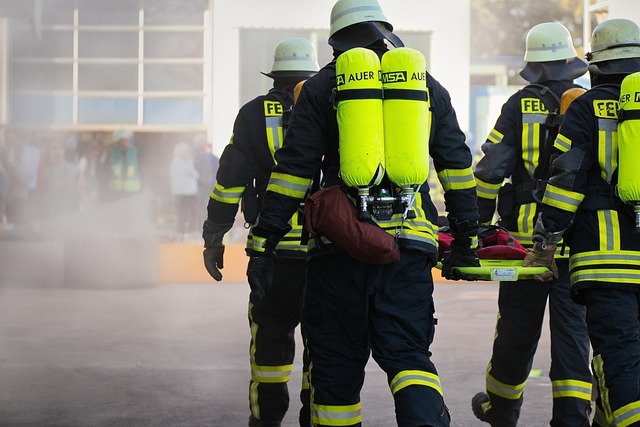Comprehensive Guide to Certified Security Guard Training
Embarking on a career as a certified security guard offers stable employment prospects and meaningful work protecting people and property. Security guard training equips individuals with essential skills in surveillance, emergency response, conflict management, and legal knowledge. This comprehensive guide explores the pathways to becoming a certified security guard, including training requirements, licensing procedures, and certification options for both newcomers and experienced professionals seeking career advancement in the security industry.

Pathways to Become a Certified Security Guard
Security guard certification typically involves completing specific training requirements established by local regulatory bodies. The certification process generally includes classroom instruction covering security fundamentals, legal guidelines, emergency procedures, and communication protocols. Most programs require approximately 40 hours of basic training, though requirements vary by region. Physical training components often include self-defense techniques, physical fitness assessments, and proper restraint methods. After completing the required coursework, candidates must pass a certification exam that evaluates their knowledge of security principles and applicable laws before applying for their security guard license.
Government Approved Security Guard Training Requirements
Government-approved security guard training ensures that professionals meet standardized competency levels. These programs typically cover essential topics including legal powers and limitations, emergency response protocols, proper reporting procedures, and professional ethics. Most jurisdictions require training from authorized providers who follow a government-established curriculum. The exact requirements vary by location but typically include background checks, minimum age requirements (usually 18 or 21), and clean criminal records. Some regions also mandate continuing education credits to maintain certification, ensuring security professionals stay current with evolving best practices and regulations in the field.
Getting a Security Guard License Without Previous Experience
New entrants to the security field can obtain licensing without prior experience through proper training and certification. Entry-level positions typically require completion of state-mandated training programs, which provide fundamental security knowledge and skills. Basic certification programs focus on essential skills like observation techniques, report writing, emergency procedures, and understanding legal boundaries. While experience is valuable, employers often consider newly certified individuals for positions like access control, reception security, or entry-level patrol roles. Some regions offer provisional licenses that allow new guards to work under supervision while completing additional training requirements, providing a pathway to full certification through on-the-job experience.
Online Security Certification Options
Online security certification programs offer flexible alternatives to traditional classroom training. These digital learning platforms deliver core security guard curriculum through video lectures, interactive modules, and virtual simulations. Most online programs cover the same essential content as in-person classes, including legal responsibilities, emergency procedures, and security protocols. While many jurisdictions accept online theoretical training, some require in-person components for physical skills assessment or firearms training. Before enrolling in an online program, prospective security guards should verify that the certification is recognized by their local regulatory authority and potential employers to ensure their investment of time and resources leads to valid credentials.
Selecting Top Rated Security Guard Training Programs
Identifying quality security guard training requires evaluating several key factors. Reputable programs maintain proper accreditation from industry or government organizations and employ instructors with extensive field experience. High-quality training includes comprehensive curriculum covering all required topics plus specialized areas like first aid, customer service, and technology use. Programs that offer hands-on training components through simulations or practical exercises typically produce better-prepared graduates. Additionally, quality training providers often maintain strong industry connections to assist with job placement after certification. Researching completion rates, graduate employment statistics, and student reviews can help identify programs with proven track records of success.
Security Guard Training Providers Comparison
| Training Provider | Program Features | Duration | Cost Range |
|---|---|---|---|
| Security Training Academy | Basic and advanced certifications, firearms training, specialized modules | 40-80 hours | $200-$800 |
| Guardian Professional Development | Online and in-person options, job placement assistance | 40-120 hours | $150-$600 |
| National Security Training Institute | Government-recognized credentials, multiple specialization tracks | 40-160 hours | $250-$1,200 |
| Protection Services Education | Entry-level and supervisor training, continuous education programs | 40-100 hours | $175-$700 |
| Security Certification Partners | Fast-track options, weekend classes, refresher courses | 40-60 hours | $200-$500 |
Prices, rates, or cost estimates mentioned in this article are based on the latest available information but may change over time. Independent research is advised before making financial decisions.
Career Advancement Through Specialized Certification
After obtaining basic security guard certification, professionals can pursue specialized training to advance their careers and increase earning potential. Advanced certifications in areas like executive protection, counterterrorism, retail security, or hospital security create pathways to higher-paying positions with greater responsibility. Management-focused certifications prepare experienced guards for supervisory roles overseeing security teams. Technical specializations in surveillance systems, access control technology, or cybersecurity complement physical security skills, making professionals more valuable to employers. Many security professionals also pursue complementary certifications in emergency medical response, crisis management, or risk assessment to enhance their versatility and marketability in the competitive security industry.
The security guard profession continues to evolve with changing threats and technologies. By obtaining proper certification through recognized training programs, security professionals position themselves for stable employment opportunities while developing valuable skills that serve both their careers and the communities they protect. Whether pursuing entry-level positions or advanced specializations, quality training forms the foundation of a successful security career.




